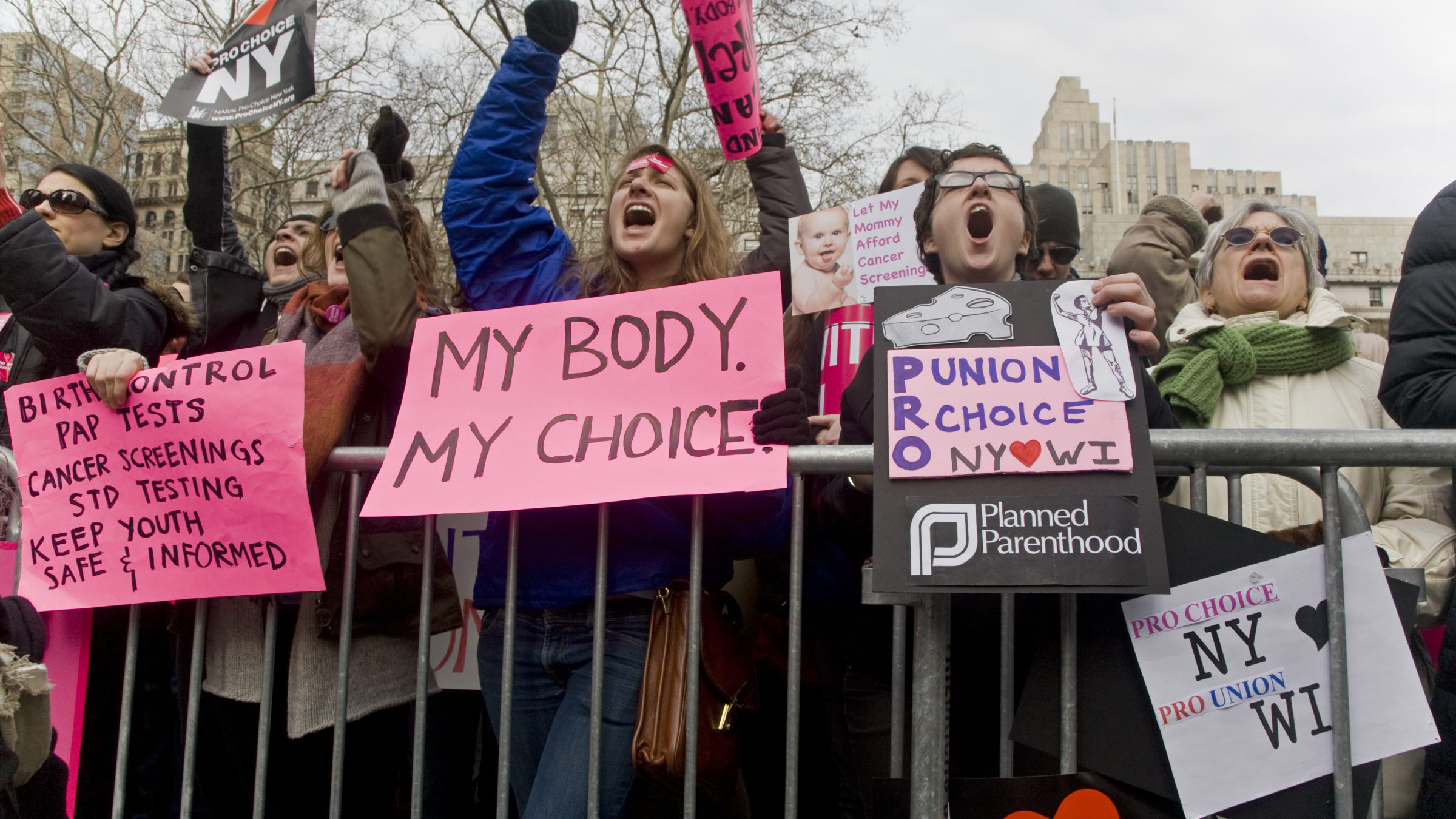For more than fifty years, the U.S. government has provided access to affordable contraception to millions of lower-income people, including to minors, under a federal law known as Title X. But thanks to federal district court judge Matthew Kacsmaryk, a Trump appointee to the Northern District of Texas, this might be about to change in Texas. In an opinion published on December 8, Kacsmaryk found that Title X “violates the constitutional right of parents to direct the upbringing of their children” because those programs allow minors to obtain contraception without the consent of their parents.
Kacsmaryk was put on the bench by Trump precisely for his hardline beliefs in this arena. He was an anti-contraception warrior at First Liberty, a hard-right conservative Christian litigation shop in Texas, suing the government over the Affordable Care Act’s contraception requirement and filing an amicus brief in support of a Washington state pharmacy that refused to dispense emergency contraception. (A law requiring pharmacists to fill a prescription or find an alternative pharmacist to fill it “authorizes an unprecedented and dangerous intrusion on the most basic right of conscience,” he wrote.) In 2015, Kacsmaryk bemoaned the loss of one of the sacred “pillars” of marriage, procreation, to the Supreme Court’s decisions in Roe v. Wade and Griswold v. Connecticut, in which the Court found restrictions on contraceptives unconstitutional.
Now, nearly 60 years after Griswold, Kacsmaryk got his opportunity to declare that restrictions on contraceptives access—at least where Title X is concerned—are not only permitted, but also constitutionally necessary.
The plaintiff, Alexander Deanda, is a precinct chair for the Randall County Republicans who, per his lawsuit, believes that unmarried children must practice abstinence and refrain from sex until marriage. Deanda is represented by Jonathan Mitchell, who helped author Texas’s SB8 law, which functionally banned abortion in Texas even before Dobbs v. Jackson Women’s Health Organization by empowering private parties to sue anyone who aids or abets abortion. (Mitchell is the guy who, in an amicus brief in Dobbs, argued that if the Court were to get rid of the right to abortion care, women would still be able control their reproductive lives “by refraining from sexual intercourse.”)
Deanda sued because, he says, he was afraid that someday, some as-yet-undetermined clinic that receives Title X funds would allow his children to access contraception. Kacsmaryk’s opinion does yeoman’s work to hand victory to Deanda by throwing out the general principles of standing, rewriting a Texas statute to say something it does not, and engaging in a little bog-standard culture war nonsense.

Pictured: Matt Kacsmaryk’s worst nightmare (Photo by Jim WATSON / AFP) (Photo by JIM WATSON/AFP via Getty Images)
Typically, litigants need “standing” to pursue a lawsuit—some sort of injury, actual or imminent, rather than a hypothetical or general fear. To get Deanda over what should be an insurmountable hurdle, Kacsmaryk employs a baffling analogy about property owners in Hawaii and Maine: Deanda, says Kacsmaryk, is akin to a Maine resident who sues after a nearby factory a damages the land, but is not like a resident in Hawaii who hopes to sue over the same pollution. The source of this analogy is a recent Supreme Court decision, TransUnion LLC v. Ramirez, but Kacsmaryk doesn’t explain its application at all. In his telling, this weird hypothetical about environmental statute enforcement allows a random guy in Texas to use federal courts to ensure that his children won’t someday learn about birth control from a Title X clinic.
Kacsmaryk plays equally fast and loose with a Texas state law under which Deanda brings his lawsuit. The statute has one brief line about the rights of parents: that they have “the right to consent to the child’s medical and dental care, and psychiatric, psychological, and surgical treatment.” Kacsmaryk reads this to mean that “when a father is told that his state-law right to consent…has been taken away…he need not wait for an actual medical situation to arise before suing to recover his right to consent.”
What Kacsmaryk is saying here is that a child learning of the existence of Title X-funded clinics amounts to the state preemptively depriving a father of his right to consent, and that an appropriate solution is banning Title X-funded clinics, or at least stopping them from providing contraception to all minors. Even assuming that this state-law right to “consent to the child’s medical and dental care” covers the federally-approved availability of birth control, there’s no assertion that any Title X clinic in the state has actually violated the statute by dispensing contraception to a minor absent parental consent. This possibility, apparently, is enough.

Demonstrator protest proposed cuts to Title X programs in 2019 (Photo by Viviane Moos/Corbis via Getty Images)
After that, Kacsmaryk shifts to amateur actuary mode, assessing the likelihood of whether any of Deanda’s children might obtain contraception from a Title X clinic. He points out that Title X clinics in Region 6—a federal designation that includes Arkansas, Louisiana, Oklahoma, New Mexico, and Texas—delivered contraception to over 35,000 people under 18 in 2021. Given the number of Title X clinics in Region 6 and the number of minors to whom contraception was dispensed, Kacsmaryk says, “the odds of this net ‘increased risk’ occurring asymptotically approach 100%—thereby making Plaintiff’s injury ‘imminent.’” He also notes that the fact that clinics are “open on most days” means that Deanda’s worst fears could come true at any moment.
A person with a brain might note that, to determine the actual “risk” to Deanda here, one might want to know how many of the clinics in this massive five-state region are anywhere near Deanda, and how much birth control they dispense regularly, and what percentage of their birth control prescriptions goes to minors, and what percentage of that percentages goes to minors without parental involvement. Kacsmaryk, however, asks none of those questions. Again, the mere fact that Title X clinics can dispense birth control to minors means that Deanda’s child is particularly at risk.
Having determined that Deanda’s abstract fear is enough to get him into court, Kacsmaryk resolves the dispute with a little bog-standard culture war nonsense. Omitting parental consent from the act of obtaining contraception he says, “gives insufficient weight to the undesirability of teenage promiscuity.” Affording confidentiality to teenage rape survivors seeking emergency contraception, he says, “drastically disrespects parental rights; the use of contraception generally, he notes, “violates traditional tenets of many faiths.” Kacsmaryk also just randomly asserts that sexually active minors under the age of consent “are often victims of statutory rape,” and supports (?) this assertion with nothing more than a citation to the portion of the Texas penal code that makes rape a crime.
Kacsmaryk’s conclusion is that the government’s administration of Title X “violates the constitutional right of parents to direct the upbringing of their children.” But it’s not clear what, exactly, happens next: Perhaps this blocks Title X clinics in the state from providing contraception entirely, or perhaps clinics are only barred from providing contraception to minors, or perhaps only to minors without parental consent. The parties are required to submit proposed orders to Kacsmaryk this week, which will presumably sort this out.
No matter what, however, this case is another victory for conservatives who demand that the government impose their rigid view of sexuality and sexual relations on everyone else. It is one step closer to the conservative legal movement’s fondest hope—that one day soon, birth control will go the way of abortion, stripped of constitutional protection entirely.




